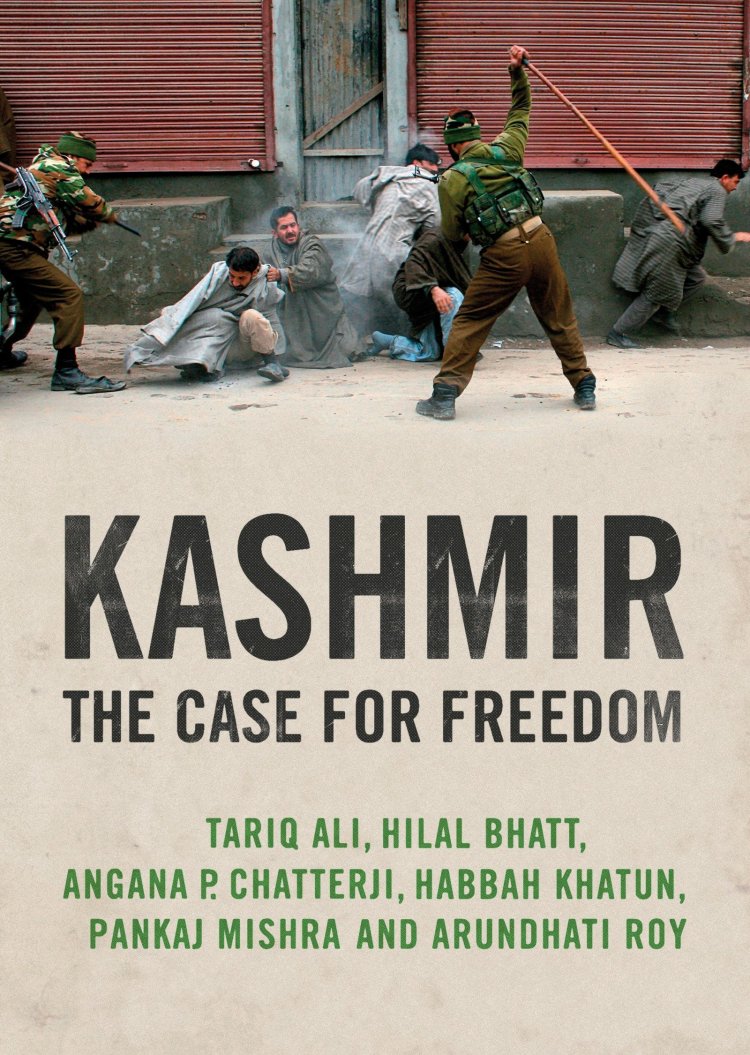Kashmir: The case For Freedom

Rating: 3.6/5
Author: Arundhati Roy
Publisher: Verso Books
Publishing Date: September, 2011
Language: English
Genre: Non-Fiction
ISBN-10: 1844677354
ISBN-13: 978-1844677351
Format: Paperback
Pages: 156
Cost: Rs. 730 (Paperback), Rs. 743.29 (Kindle Edition)
Plot:
Kashmir is one of the most protracted and bloody occupations in the world—and one of the most ignored. Under an Indian military rule that, at half a million strong, exceeds the total number of US forces in Iraq and Afghanistan, freedom of speech is non-existent, and human- rights abuses and atrocities are routinely visited on its Muslim-majority population. In the last two decades alone, over seventy thousand people have died. Ignored by its own corrupt politicians, abandoned by Pakistan and the West, which refuses to bring pressure to bear on its regional ally, India, the Kashmiri people’s on-going quest for justice and self- determination continues to be brutally suppressed. Exploring the causes and consequences of the occupation, Kashmir: The Case for Freedom is a passionate call for the end of occupation, and for the right of self- determination for the Kashmiri people.
Review:
This book presents an anthology of articles that brings together a case for the dispersion in Kashmir. The readers will get an insight and contemplation inside Kashmir's historical context, dating back to 8th Century: invasions, oppression and what it is like to live under constant terror and dictatorship.
It contains a lot of un-heard stories about the violence carried out by the Indian army in Kashmir and how well the Indian media manipulates it’s people into thinking and looking at a completely different picture; most Indians actually have no idea about what is really going on or what Kashmiri people want.
The personal reflection ‘Fayazabad 31223’ by Kashmiri writer Hilal Bhatt is petrifying and alarming. Angana P. Chatterji's description of the Kashmiri freedom struggle is something to ponder upon for a long time. In fact, the readers will be disclosed to the many unknown and interesting facts, like:
1) Much of the weaponry used in Kashmir by the Indian army is purchased from Israel;
2) Israeli army officials have gone to Kashmir to train Indian soldiers.
Tariq Ali shed light on the historical events regarding the invasions from different rulers and oppressors over the course of centuries. Arundhati Roy, witnessed through her own eyes, the protests rally in IOK, observed what Kashmiris really want!
Hilal Bhatt penned down a heinous first-hand account of violence against Kashmiris in the aftermath of the demolition of Babri Masjid; detailing out his horrific experience of surviving a deadly and brutal attack by BJP extremists on his Train journey from Aligharh to Kashmir. His article specially highlights the unsteady life that Kashmiris have to live every day. The book also contains a collection of agonizing poems by the Kashmiri poet, Hubbah Khatun, on the bygone days of freedom.
Overall, this book serves as a reminder of how tragic the story of Kashmir has become.
About the Author:
Arundhati Roy was born in 1960 in Kerala, India. She studied architecture at the Delhi School of Architecture and worked as a production designer. She has written two screenplays including Electric Moon (1992) that was commissioned by Channel 4 television.
Her first novel ‘God of small things’ won the Booker Prize for Fiction in 1997. An immediate bestseller, the novel was published simultaneously in 16 languages and 19 countries but caused controversy in India for the description of a love affair between a Syrian Christian and a Hindu 'untouchable'. She is also the author of several non-fiction books including: The Cost of Living (1999)- a highly critical attack on the Indian government for its handling of the controversial Narmada Valley dam project and for its nuclear testing programme; Power Politics (2001)- a book of essays; and The Algebra of Infinite Justice- a collection of journalism. The Ordinary Person's Guide to Empire was published in 2004. She has since published a further collection of essays examining the dark side of democracy in contemporary India ‘Listening to Grasshoppers: Field Notes on Democracy’ (2009).
Her latest book is ‘The Ministry of Utmost Happiness’ (2017), her second novel. It was longlisted for the Man Booker Prize and, in the US, was a finalist for the National Book Critics Circle Award. For her work as an activist she received the Cultural Freedom Prize awarded by the Lannan Foundation in 2002.















































